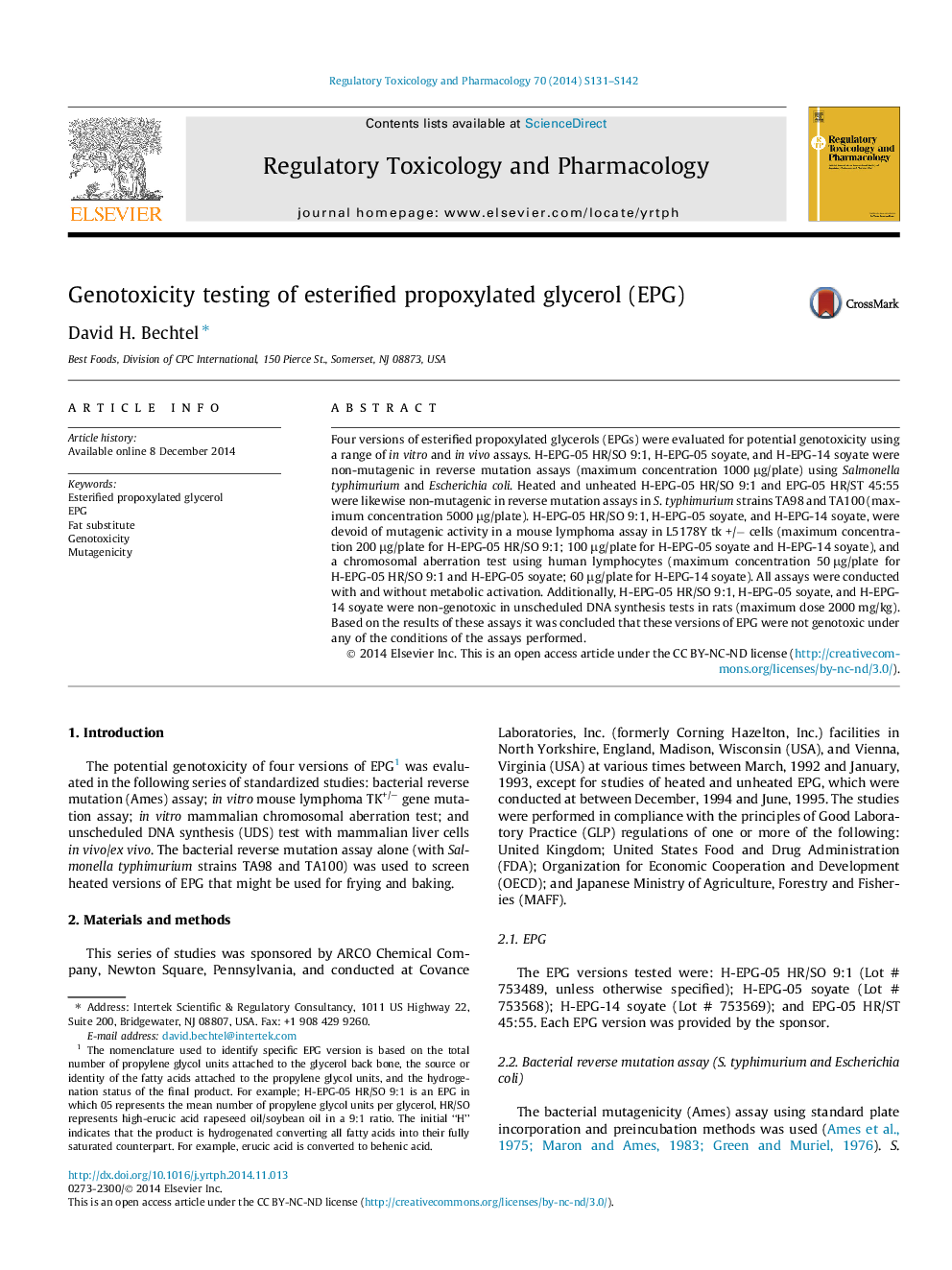| Article ID | Journal | Published Year | Pages | File Type |
|---|---|---|---|---|
| 5857020 | Regulatory Toxicology and Pharmacology | 2014 | 12 Pages |
Abstract
Four versions of esterified propoxylated glycerols (EPGs) were evaluated for potential genotoxicity using a range of in vitro and in vivo assays. H-EPG-05 HR/SO 9:1, H-EPG-05 soyate, and H-EPG-14 soyate were non-mutagenic in reverse mutation assays (maximum concentration 1000 μg/plate) using Salmonella typhimurium and Escherichia coli. Heated and unheated H-EPG-05 HR/SO 9:1 and EPG-05 HR/ST 45:55 were likewise non-mutagenic in reverse mutation assays in S. typhimurium strains TA98 and TA100 (maximum concentration 5000 μg/plate). H-EPG-05 HR/SO 9:1, H-EPG-05 soyate, and H-EPG-14 soyate, were devoid of mutagenic activity in a mouse lymphoma assay in L5178Y tk +/â cells (maximum concentration 200 μg/plate for H-EPG-05 HR/SO 9:1; 100 μg/plate for H-EPG-05 soyate and H-EPG-14 soyate), and a chromosomal aberration test using human lymphocytes (maximum concentration 50 μg/plate for H-EPG-05 HR/SO 9:1 and H-EPG-05 soyate; 60 μg/plate for H-EPG-14 soyate). All assays were conducted with and without metabolic activation. Additionally, H-EPG-05 HR/SO 9:1, H-EPG-05 soyate, and H-EPG-14 soyate were non-genotoxic in unscheduled DNA synthesis tests in rats (maximum dose 2000 mg/kg). Based on the results of these assays it was concluded that these versions of EPG were not genotoxic under any of the conditions of the assays performed.
Related Topics
Life Sciences
Environmental Science
Health, Toxicology and Mutagenesis
Authors
David H. Bechtel,
